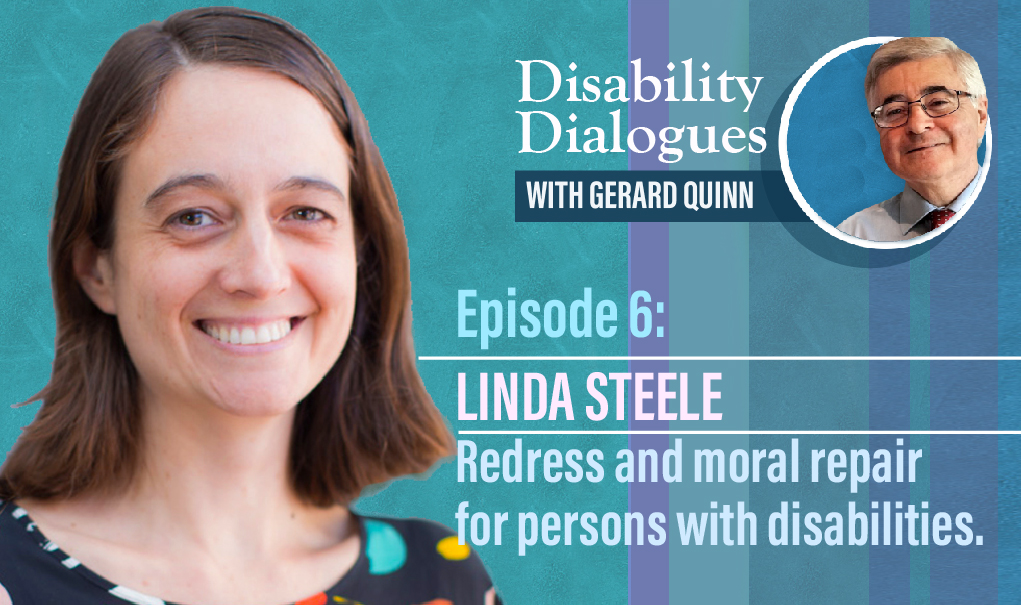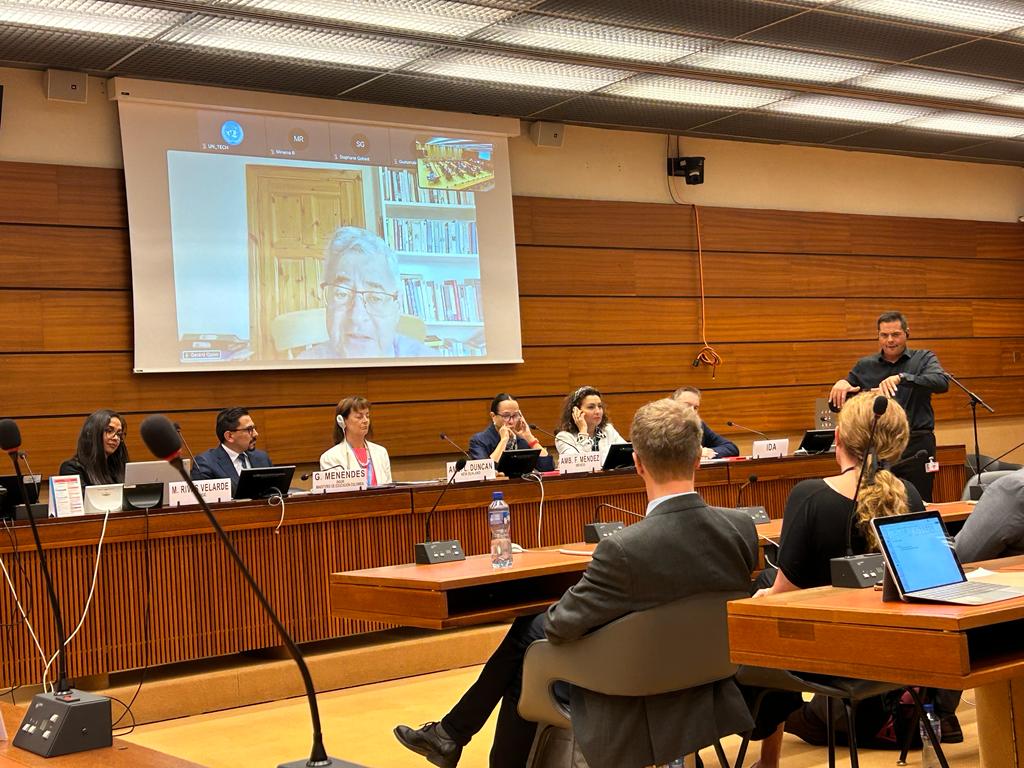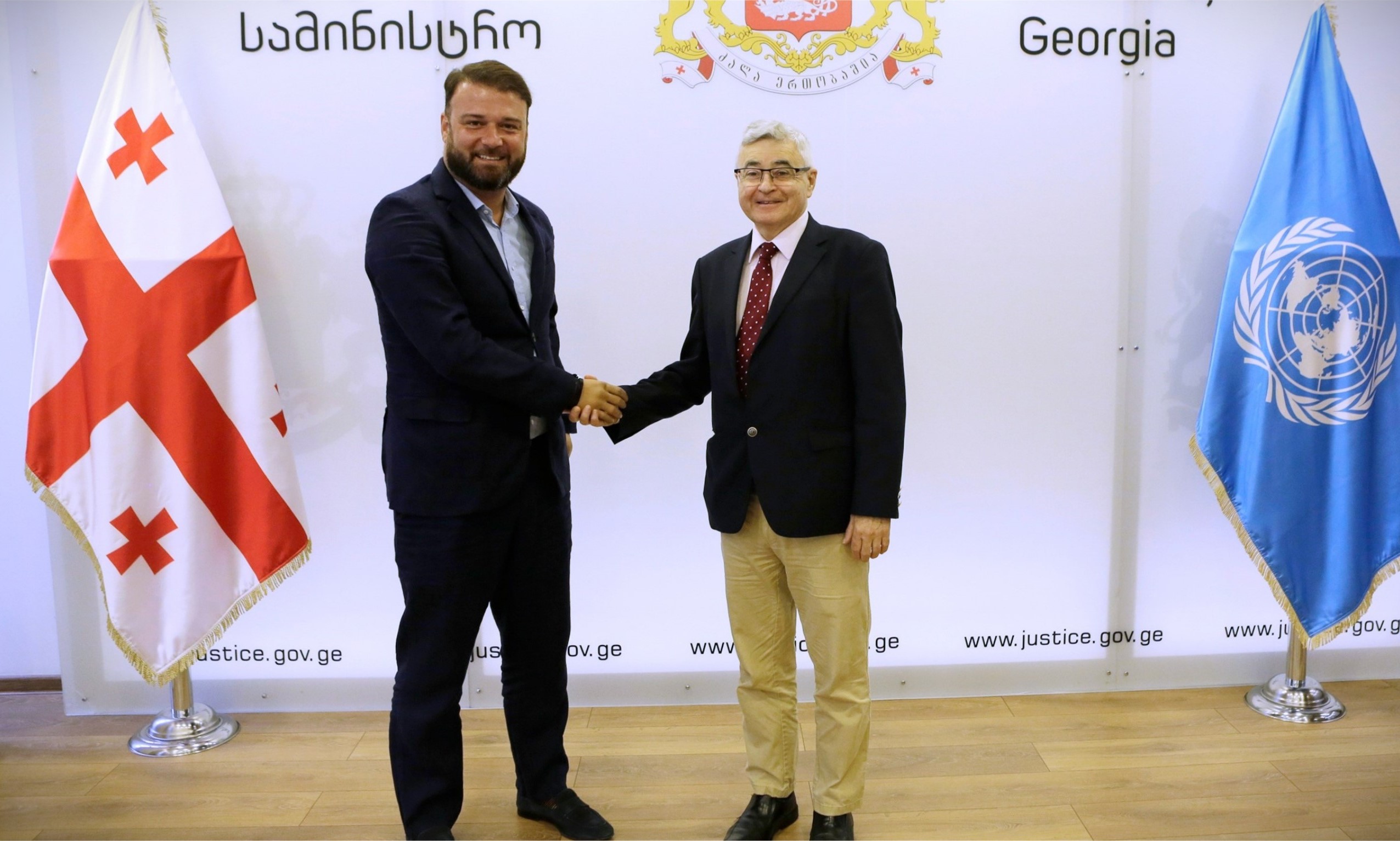In his appearance before the UN Human rights body, the Special Rapporteur presented his latest report on reimagining support services for persons with disabilities, and commented on his 2022 country visits to Jordan and the European Union.
Human rights-based support systems and services for people with disabilities must be prioritised to ensure that no one is left behind, @SR_Disability Gerard Quinn told the Human Rights Council.
— UN Human Rights Council 📍#HRC52 (@UN_HRC) March 13, 2023
Full REPORT to #HRC52 ➡️https://t.co/NI02FQhGm9 pic.twitter.com/vBID8aCVVr
Transformation of services
My thematic report this year is intended to inform and expand our collective policy imagination when it comes to the implementation of the UN convention on the rights of persons with disabilities. It is based on a call for inputs and an expert consultation. I would like to thank all those who made inputs and especially those States present today.
Allow me to make a few general points before our interaction which I look forward to.
First of all, human rights do not exist in a vacuum. They have an eco-system which must be tended to if they are to be made real. Reforming law and policy is, relatively speaking, the easy bit. Changing the underlying systems and programmes that have evolved over decades is another matter – but equally vital if we are to succeed in the long term. Many in the sector, to their credit, strived hard for change. Now, however, we have better tools to turn these ships around and we must do so to give life to human rights.
Secondly, as my report indicates, in this re-set there is a need to move to a new philosophy of services and support – one that puts clear blue water between it and the static welfare model of the mid-20th century. The end aim is no longer simply to provide a material safety net that enabled people to live at the margins of society. Instead, the end aim is to subserve personhood and social inclusion. Such a shift of operational philosophy is fully warranted by the novel predicates of the UN CRPD. It is especially warranted by Article 19 (right to live independently) but is implied by the deep logic of the Convention throughout.
Third, we do have at our disposal the means to give effect to this new philosophy in how we sculpt the market. And make no mistake, it is a multi-billion dollar market worldwide. Whether for profit, in the social market economy, or not for profit, they are all in some form fiscal relationships with Government. It stands to reason that the public interest in the advancement of the CRPD would be/or ought to be the overriding concern of Governments interested in optimising return for their taxpayers.
My report surveys the many innovative policy tools now at the disposal of Governments to enable them re-shape the market (broadly understood) to ensure it is calibrated to advance and not impede the implementation of the CRPD. These include a trend toward disaggregating budgets and devolving them to the consumer (with appropriate supports); a trend toward the personalisation of supports to the individual and his/her life circumstances; an intelligent approach to public procurement (or its equivalent) to try to ensure that all those in a fiscal relationship with the taxpayers are doing their bit to advance the CRPD (whilst avoiding concentrations of ownership and control); facilitating entrepreneurship within the disability community (e.g., through small business grants).
Equally promising are steps being taken by several Governments in favour of ‘positive wealth accumulation strategies’ to get around the common phenomenon such that persons with disabilities are required to impoverish themselves to be eligible for social programmes (despite the known additional costs of disability). My report also states how the use of Artificial Intelligence can meaningfully advance the personalisation of services even in – or perhaps especially in – low- income countries.
Most importantly, markets are never ends in themselves but means to an end. When the report focuses on optimising tools to shape the market it does not mean to suggest that the market, either as a means or a metaphor commoditising people and services, ought to be dominant. It simply means to emphasise that when a focus is placed on markets then a similarly sharp focus should be equally placed on how to shape them to achieve optimum social results.
Fourth, a puzzle – to me at least – is why the otherwise rich debate about business and human rights never seemed to port over to the multi-billion dollar industry of support services for persons with disabilities? In my report I try to draw out the practical implications of this debate in the context of disability services. The goal is not to equate the private sector with the public sector. The goal is to try to animate the private sector (and all shades within) to see themselves as part of the broader eco-system for achieving rights alongside their other goals. Perhaps the most important desideratum (on the part of business) is to actively consult and co-produce with civil society products and services that genuinely advance rights. I am glad to report that important networks of service providers around the world fully embrace this turn toward business and human rights in the context of the CRPD.
Fifth, this journey of transformation will not be without some acute policy dilemmas for policymakers. I do not pretend that the CRPD has simple answers. For example, States will have to honestly face the implicit balance between formal and informal care. Usefully, the UN CRPD Committee touched on this in their Decision in Bellini – Italy in December 2022. There the Committee found that the relative lack of family support amounted to a breach of the CRPD. This creates space for a long-overdue debate about the rights of carers and how they can be intentionally reconciled with the rights of persons with disabilities.
Nor does personalisation preclude issues of equity especially as between different cohorts of persons with disabilities.
And of course, workforce development (recruitment and retention of staff), must be intentionally thought through with meaningful career paths and reward systems in the future. This goes toward the sustainability of change and the sector – a key underpinning to the rights of persons with disabilities.
Many blueprints for change are steadily appearing that build on new possibilities – including a remarkably visionary one from the New Zealand Law Foundation (2022).
Last but not least, the broader UN system will shortly review the future of the care economy more generally. A word of caution. Words can unintentionally carry forward elements of outdated assumptions and philosophies. It has to be understood that, as applied to persons with disabilities, ‘care’ means and can only mean an approach underpinned by and consistent with the underlying philosophy of the UN CRPD – honouring personhood and achieving inclusion. Anything else is likely to reproduce the past which hardly served the rights of persons with disabilities well and which led to concentrations of ownership and control that served no observable public interest.
Let me now turn to the reports on my visits to the European Union and to Jordan. Firstly, I would like to thank both the EU and Jordan for the positive cooperation and excellent interactions I had the opportunity to hold.
Visit to the European Union
From 21 to 31 March 2022, I visited the headquarters of the European Union in Brussels. I was impressed by the commitment and work of the many institutions and staff I met to implement the rights of persons with disabilities. As the only regional organization to have ratified the CRPD, the EU has developed a robust legal and policy basis for action on disability which is complemented by significant financial resources. Clearly, the values and principles underpinning the CRPD have sunk deep roots within EU institutions.
The latest European Disability Strategy (2021-2030) as well as efforts to mainstream disability perspectives into all policy domains are excellent steps in the right direction. I was particularly impressed by the level of inclusion of disability rights in the EU’s external policy, including in development assistance, policy frameworks on human rights, and in multilateral and regional fora. I also warmly welcome the willingness to factor relevant disability perspectives into programming and operations on civil protection and humanitarian aid.
These positive developments are somewhat undercut by the lack of consistent approach with regard to the use of EU funds to advance CRPD implementation, especially in the field of independent living. As a matter of priority, existing guidance allowing investments into residential institutions must be substantially revised. The new guidelines on independent living and deinstitutionalization to be developed as part of the new Disability Strategy provide a golden opportunity to re-examine the situation once and for all and discontinue investments and actions that maintain institutionalisation of persons with disabilities.
Visit to Jordan
I had the pleasure to visit Jordan from 5 to 15 September 2022. Jordan is a long-standing supporter of the rights of persons with disabilities and an early signatory of the CRPD. Its commitment to the issue makes Jordan a leader in advancing the rights of persons with disabilities not only regionally but also globally as demonstrated by the co-sponsorship of the third Global Disability Summit in 2024.
I congratulate the Government for its extensive and ongoing law reform to harmonize domestic legislation with commitments set out in the Convention as well as for setting up a robust institutional architecture to make rights of persons with disabilities a reality.
The disability legal framework includes the explicit prohibition of discrimination on the basis of disability coupled with the duty to provide reasonable accommodation. This is a key driver of changes which warrants further legal development and clarification as well as practical implementation.
Most important, in my opinion, is action to combat stigma and shift the cultural paradigm around disability. Ensuring people with disabilities, including persons with intellectual and psychosocial disabilities, are viewed as equal human beings who have the right and are supported to make choices for themselves is paramount.
I was particularly touched by encounters with people with disabilities, especially children and youth, who shared with me how the negative cultural perception of disability has a devastating effect on their daily lives. Serious challenges faced by refugees with disabilities to meet their basic needs are another key takeaway from the visit. Jordan hosts 760,000 refugees and asylum-seekers, a monumental task that cannot be undertaken without the support of the international community. Sustained humanitarian aid and targeted programming for refugees with disabilities is much needed.
Watch the interactive dialogue:






